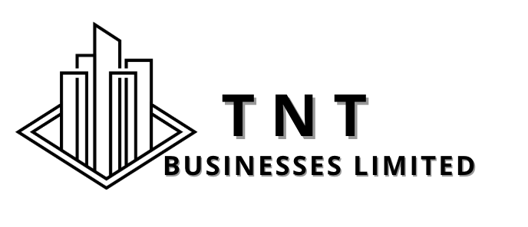Understanding the Construction Permit Process in Cameroon


Introduction to Construction Permits in Cameroon
Construction permits are crucial legal documents required for any building or renovation project in Cameroon. They serve as official approvals granted by local or national authorities, ensuring that the proposed construction adheres to established safety standards, zoning laws, and building codes. Obtaining a construction permit is a fundamental step in the building process, as it validates that the project complies with regulatory frameworks and local planning requirements. This not only safeguards the structural integrity of the buildings but also protects public welfare.
The significance of securing a construction permit cannot be overstated. Without this essential approval, individuals and businesses may face legal repercussions, including fines, or even demolition of unauthorized structures. Moreover, the permit process is designed to assess and mitigate risks associated with construction activities, ensuring that projects adhere to environmentally sound practices and urban planning regulations. Therefore, understanding the intricacies of construction permits is imperative for anyone looking to undertake construction or renovation projects in Cameroon.
As urbanization continues to expand within the country, awareness of the construction permit process has become increasingly important. Developers, contractors, and homeowners must navigate a complex system involving document submission, fees, and inspections. This rigorous process not only makes compliance with the law feasible but also helps maintain quality in infrastructure development. Additionally, securing a permit can positively influence a project's funding prospects, as financial institutions often require proof of compliance with construction regulations before approving loans or mortgages.
In summary, construction permits play a pivotal role in the building process in Cameroon. Understanding their importance and the associated processes is invaluable for ensuring safety, compliance with legal standards, and the overall success of construction endeavors.
Types of Construction Permits
In Cameroon, understanding the types of construction permits is crucial for ensuring compliance with local regulations and for successfully initiating construction projects. The construction permit process involves various permit categories, each designed to address specific construction needs. The primary types of permits include building permits, renovation permits, and special permits for unique projects.
The building permit is perhaps the most common permit required for new construction. This permit ensures that the proposed building complies with zoning laws, safety standards, and environmental regulations. Generally, individuals or organizations must submit detailed architectural plans, engineering designs, and land surveys to obtain a building permit. The application process can also include additional documentation such as proof of land ownership and any environmental impact assessments, ensuring all aspects of the construction project are sufficiently evaluated.
Renovation permits, on the other hand, are applicable for projects involving modifications to existing structures. These permits may be necessary for significant renovations, including changes to the building’s footprint, structural alterations, or updates to utilities. Even minor renovations that could impact the building's integrity or the surrounding environment may require this type of permit. By obtaining a renovation permit, property owners can assure that their projects adhere to the same regulatory standards as new constructions.
Additionally, special permits may be needed for unique construction projects that fall outside of standard classifications, such as commercial projects, public infrastructure developments, or projects located in protected areas. Obtaining such permits typically involves a comprehensive review process, often requiring additional public consultation and adherence to specific guidelines depending on the nature of the project.
Being aware of the various types of construction permits and understanding when each is needed is essential for anyone looking to undertake construction in Cameroon. Properly navigating this process can save both time and resources, ultimately leading to a successful construction initiative.
Local Regulations and Requirements
In Cameroon, the construction permit process is guided by a comprehensive legal framework that encompasses various local regulations and requirements. Understanding these regulations is crucial for any individual or organization looking to undertake construction projects within the country. One of the primary aspects to consider is zoning laws, which dictate how land can be used in different areas. Each municipality has established zones designated for residential, commercial, industrial, or agricultural purposes. Therefore, it is essential to consult local zoning ordinances to ensure that the intended construction complies with the designated land use.
Another critical element of the construction permit process is environmental regulations. Cameroon is committed to sustainable development, and as such, construction projects must adhere to guidelines aimed at minimizing environmental impact. This includes conducting Environmental Impact Assessments (EIAs) for larger projects to evaluate potential environmental risks and to propose mitigation strategies. Failure to comply with these environmental regulations can result in significant fines or project delays.
Additionally, the building codes in Cameroon set out specific technical standards and safety requirements that must be followed during the construction process. These codes focus on aspects such as structural integrity, sanitation, and overall safety of buildings. Proper knowledge and adherence to these building codes are vital to ensure not only compliance with local law but also the safety of future occupants. Local authorities conduct inspections at various stages of construction to ensure that these standards are being met. Overall, a thorough understanding of local regulations surrounding construction permits is crucial, as non-compliance can lead to project setbacks or legal challenges.
Step-by-Step Guide to Obtaining a Construction Permit
Obtaining a construction permit in Cameroon is a critical component of ensuring compliance with national regulations and local standards. The initial step in the process begins with project planning. It is essential for the applicant to outline the project scope, including objectives, designs, and timelines. This preliminary phase sets the foundation for subsequent documentation and approvals.
Following project planning, the next stage involves the preparation of requisite documents. These documents typically include architectural plans, land ownership proof, and an environmental impact assessment, depending on the project's nature and scale. It is advisable to engage professionals such as architects and engineers to ensure compliance with structural and safety regulations. Properly prepared documentation can significantly expedite the processing time during the approval stages.
Once the documents are ready, the applicant must submit them to the appropriate local authority, which may vary depending on the project location. Submission typically requires the payment of processing fees, which can vary by municipality and project size. It is beneficial to verify the specific fee structure in advance to avoid unintended delays.
After submission, the local authority reviews the application and related documents. This review may involve site inspections or requests for additional information. To navigate potential pitfalls, maintaining open communication with the reviewing department is vital. Applicants should be prepared to address any queries promptly. The review timeline can fluctuate based on the authority’s workload, so patience is essential during this phase.
Once approved, the applicant receives the construction permit, allowing the commencement of the project. Adhering to the terms outlined in the permit is crucial to avoid any legal repercussions. Understanding the construction permit process, including the requirements at each stage, will ultimately facilitate a smoother transition from planning to executing the construction project.
Key Authorities Involved in the Permit Process
In Cameroon, the construction permit process involves various authorities and government bodies, each playing a crucial role in ensuring that construction projects comply with legal, safety, and environmental regulations. Understanding these key entities can empower project developers to navigate the process with greater ease and efficiency.
The primary authority is the Ministry of Housing and Urban Development (MINHDU), which oversees urban planning and development regulations. This ministry is tasked with issuing construction permits, assessing applications, and ensuring compliance with national building codes. Permit seekers often interact with regional offices of MINHDU, which provide localized guidance on building standards and zoning laws.
Another significant authority in the permit process is the Ministry of Environment, Protection of Nature, and Sustainable Development (MINEPDED). This body focuses on ensuring environmental sustainability and will assess the environmental impact of proposed construction projects. Projects that may have significant ecological consequences must obtain an Environmental Impact Assessment (EIA) as part of the permit application process. For this reason, collaboration with MINEPDED is essential to ascertain that construction activities do not harm the environment.
Local government authorities, including municipal councils, also play an essential role in the construction permit process. These entities handle the initial permit applications and are responsible for conducting site inspections. They evaluate compliance with zoning regulations and may require additional documentation specific to the local context. Engaging with local authorities early in the planning stage can help mitigate delays in the permit approval process.
In addition to these key institutions, various other agencies—such as those responsible for public safety, urban development, and historical site preservation—may also be involved, depending on the project's nature. For further guidance, stakeholders are encouraged to visit official websites or contact relevant authorities directly for information tailored to their particular construction ventures.
Common Challenges and Solutions in the Permit Process
Applying for construction permits in Cameroon can be fraught with a variety of challenges that may impede progress. One major hurdle is the bureaucratic delays often encountered during the application process. These delays can be attributed to insufficient staffing, lack of streamlined procedures, or an overwhelming number of applications that the relevant authorities must process. As a result, applicants frequently find themselves waiting for extended periods, which can stall construction timelines and generate additional costs.
Another significant challenge is the misunderstanding of permit requirements. Many applicants enter the process without a clear grasp of what documentation is necessary or the specific regulations that govern their projects. This can lead to incomplete submissions, which in turn may result in further complications or rejections. Therefore, it is essential for applicants to conduct thorough research or seek pre-application consultations with local authorities to gain clarity on the necessary steps and documentation.
Additionally, disputes over regulations may arise during the permit process. These disputes can occur when the local authorities interpret regulations differently from the applicant's understanding or when there is a lack of consistency in how rules are applied. Engaging with experienced professionals, such as construction lawyers or consultants who are well-versed in local laws, can assist in navigating these complexities. They can help to resolve misunderstandings and advocate for the applicant’s interests effectively.
To address these challenges and facilitate a smoother permit application process, applicants should consider establishing contacts within relevant government offices. Networking with officials can provide insights into best practices and expedite communication. Furthermore, should an application be rejected, it is advisable to explore the appeals process thoroughly. Understanding one’s rights and available legal recourse is crucial in overcoming obstacles associated with construction permits in Cameroon.
Conclusion and Recommendations for Prospective Builders
As we have explored throughout this blog post, the construction permit process in Cameroon is vital for ensuring that building projects comply with local laws and standards. A thorough understanding of this process not only aids in the successful completion of a construction project but also serves to protect the interests of builders, investors, and the communities in which these structures are erected. It is imperative that prospective builders familiarize themselves with the necessary steps required to obtain construction permits, as this knowledge can prevent unnecessary delays and legal complications.
To foster a smooth construction experience, we recommend seeking professional assistance wherever possible. Engaging with local architects, engineers, or project managers who are well-versed in the nuances of the permit process can provide invaluable insight into navigating regulatory requirements. These professionals can help streamline the application process and ensure that all aspects, from documentation to compliance, meet the expectations set forth by the authorities. Furthermore, maintaining diligent adherence to local regulations is crucial. Builders should consistently ensure that their projects align with zoning laws, safety codes, and environmental standards to avoid any legal disputes or fines.
In light of the evolving nature of construction regulations, staying informed about any changes in legislation is equally important for builders. Regularly consulting with local governmental offices or subscribing to construction industry news can help builders remain updated on any new requirements or amendments to existing laws. This proactive approach not only secures the legitimacy of current projects but also prepares builders for future endeavors.
Ultimately, embracing responsible building practices that prioritize adherence to the construction permit process contributes positively to the safety and sustainability of community development. By following these recommendations, prospective builders can position themselves for success while also fostering a commitment to constructing safe, durable, and compliant structures in Cameroon.


